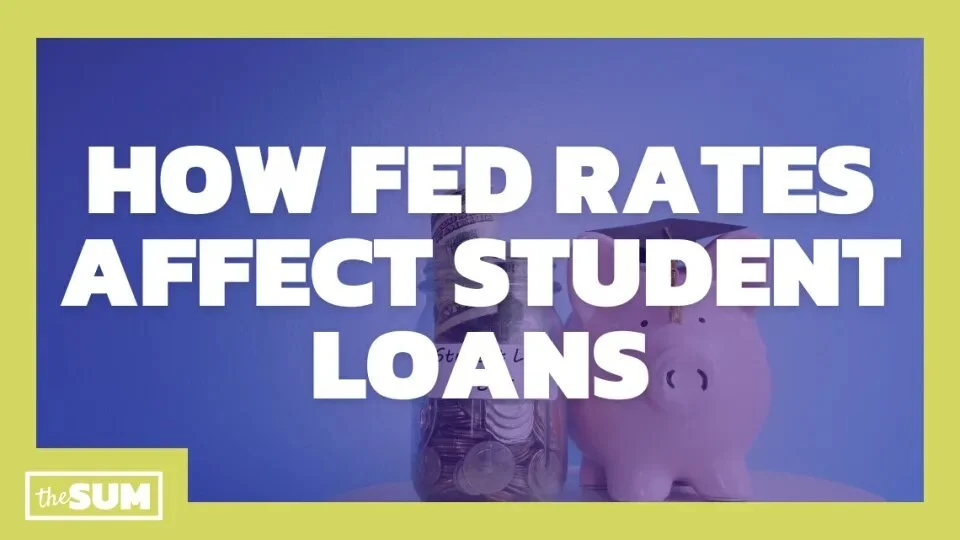How do interest rates set by the Federal Reserve affect your student loans?
The Federal Reserve just raised interest rates. But do those rates also affect your student loans? Let’s talk about it.
The short answer is no — at least not directly.
If you’ve already taken out a loan, the Fed’s decisions won’t affect you. But any new loans will reflect current trends.
But federal student loan interest rates are the highest they’ve been in a decade. And in the Fed’s efforts to curb inflation, the latest increase on the federal funds rate — which is how much banks charge each other to borrow or lend money, according to Investopedia — brings that to the highest in 22 years.
When the Fed raises interest rates, borrowing costs get more expensive, The New York Times reported. That affects everything from car loans to credit cards, and even yields on Treasury securities. The Fed does not set student loan interest rates. But the steps the Fed takes generally influences other interest rates, CBS News reported. This was the 11th time the Federal Reserve has raised interest rates since March 2022.
Federal student loan rates actually follow a formula based on the 10-year Treasury note, according to NerdWallet. Treasury note rates are set by auction. And then there are markups depending on the type of federal loan.
“While the Fed’s changes are going to affect the market for Treasury notes, so will expectations about future Fed rate changes,” Elizabeth Pennington, CFP, senior associate at Fearless Finance, told CBS News.
Federal student loans have fixed interest rates that are set on July 1 every year. For this school year, new direct federal loans for undergrads will have an interest of 5.5%, up from 4.99%.
“Most students are probably better off choosing the best financing options in the present rather than trying to guess the Fed’s and economy’s moves a year from now,” Pennington told CBS News.
What steps, if any, should you take to respond to the Fed’s rate increase? Here’s what Bankrate recommends:
Federal student loans: your rates won’t change, so stick with these.
Fixed-rate private student loans: Your rate won’t change, but you could explore refinancing to a lower fixed rate.
Variable-rate private student loans: Your payments and interest change based on the market. If the change means you’re paying more each month, make sure you have the best rate available and if not, consider refinancing.

